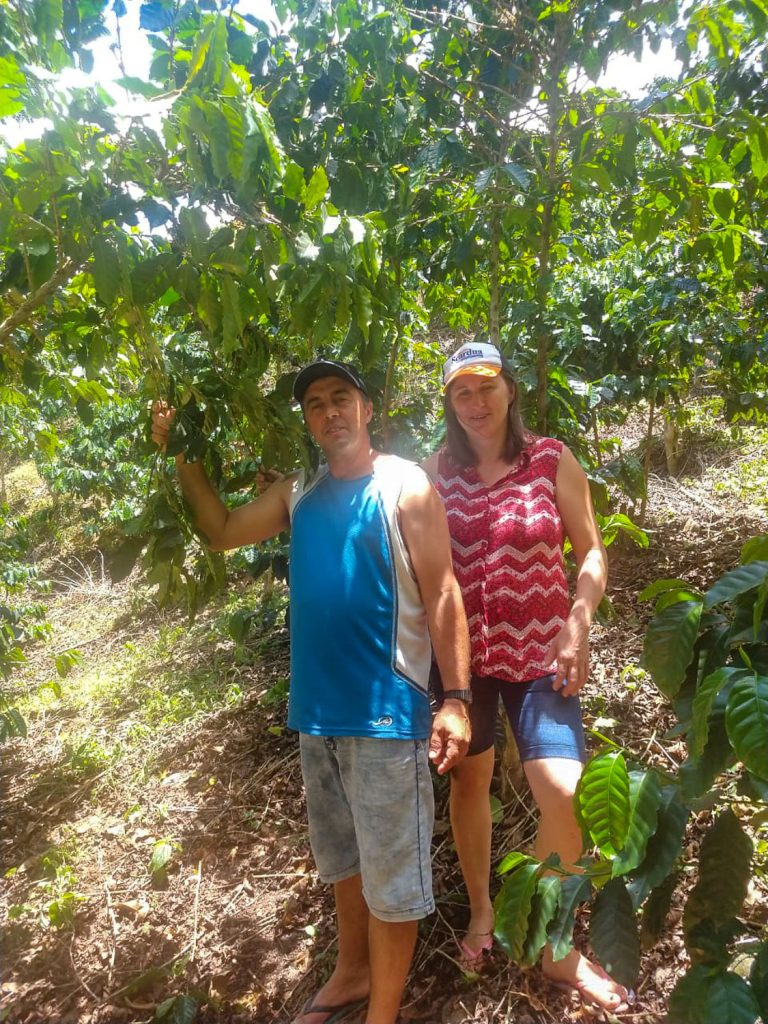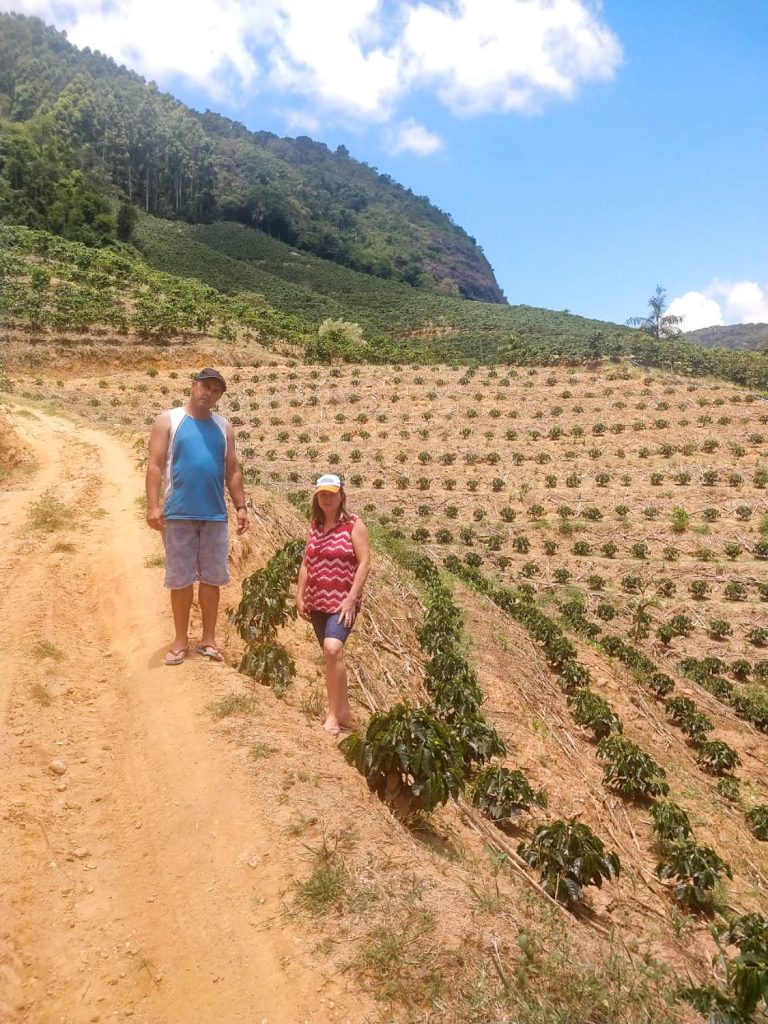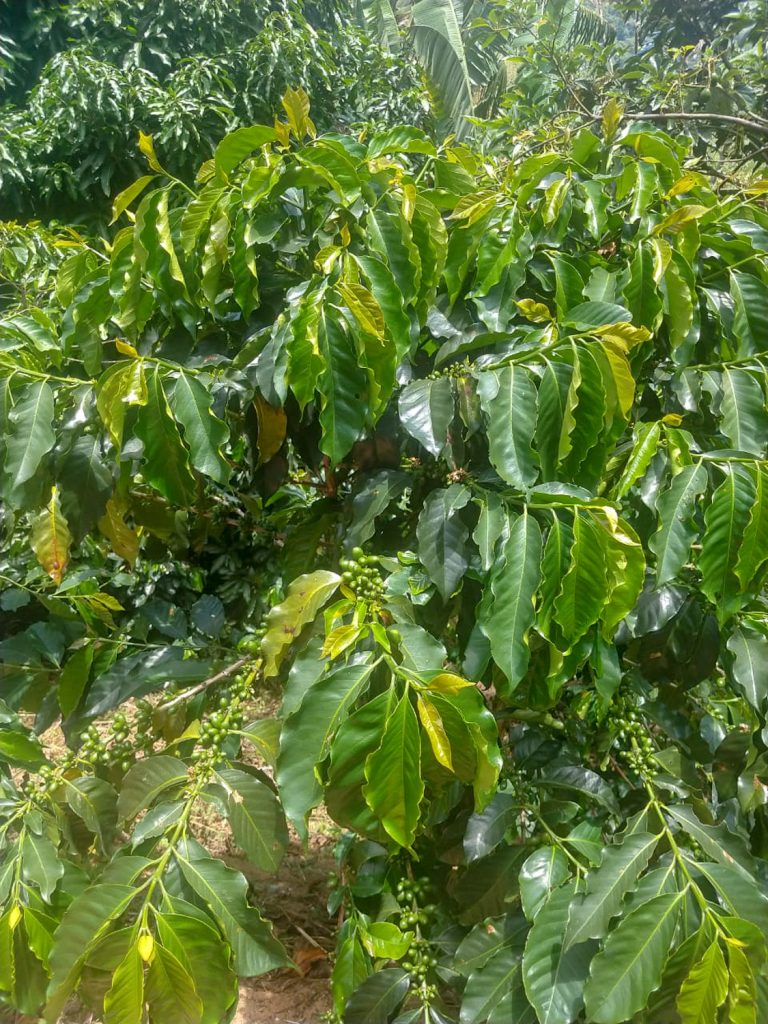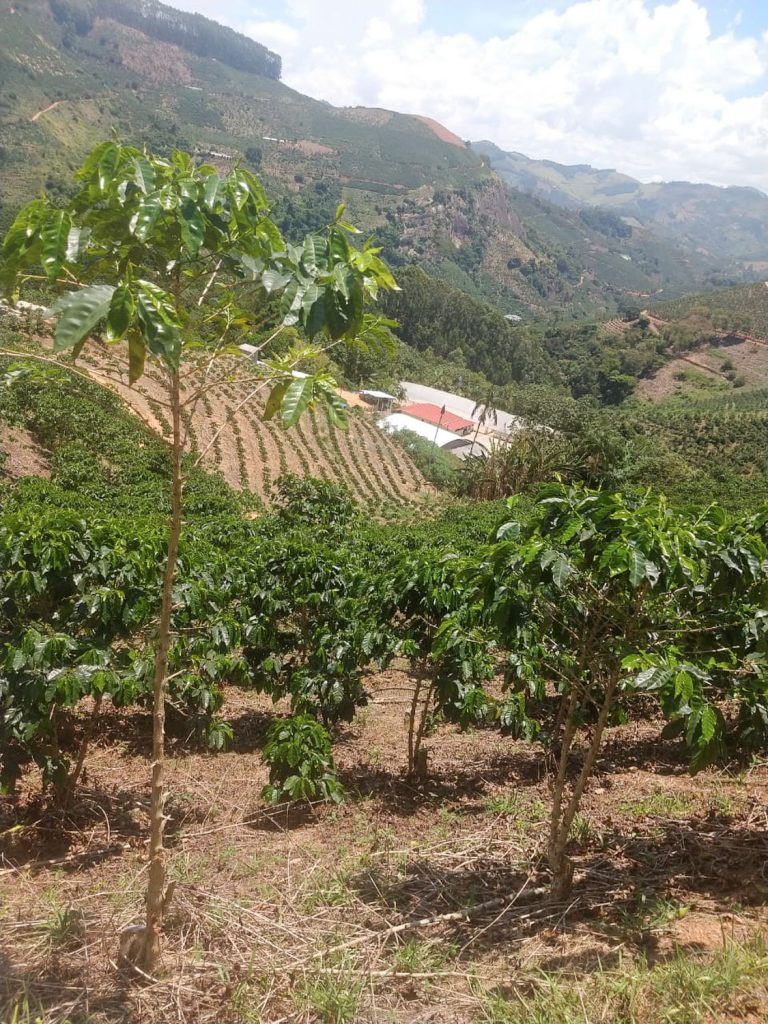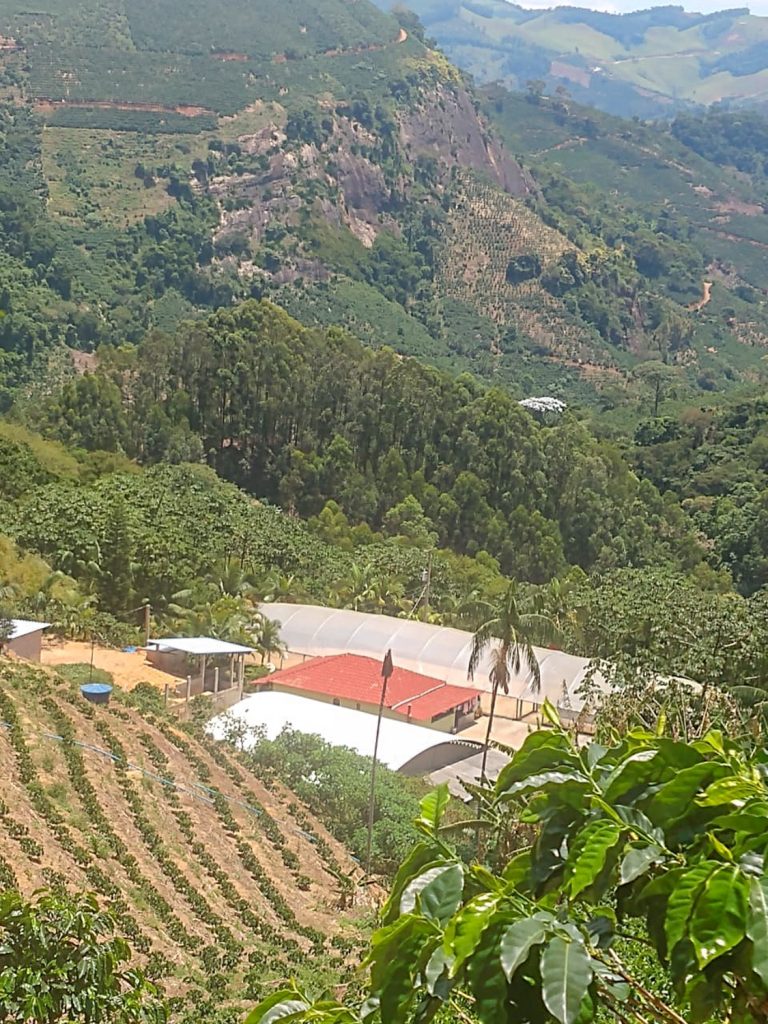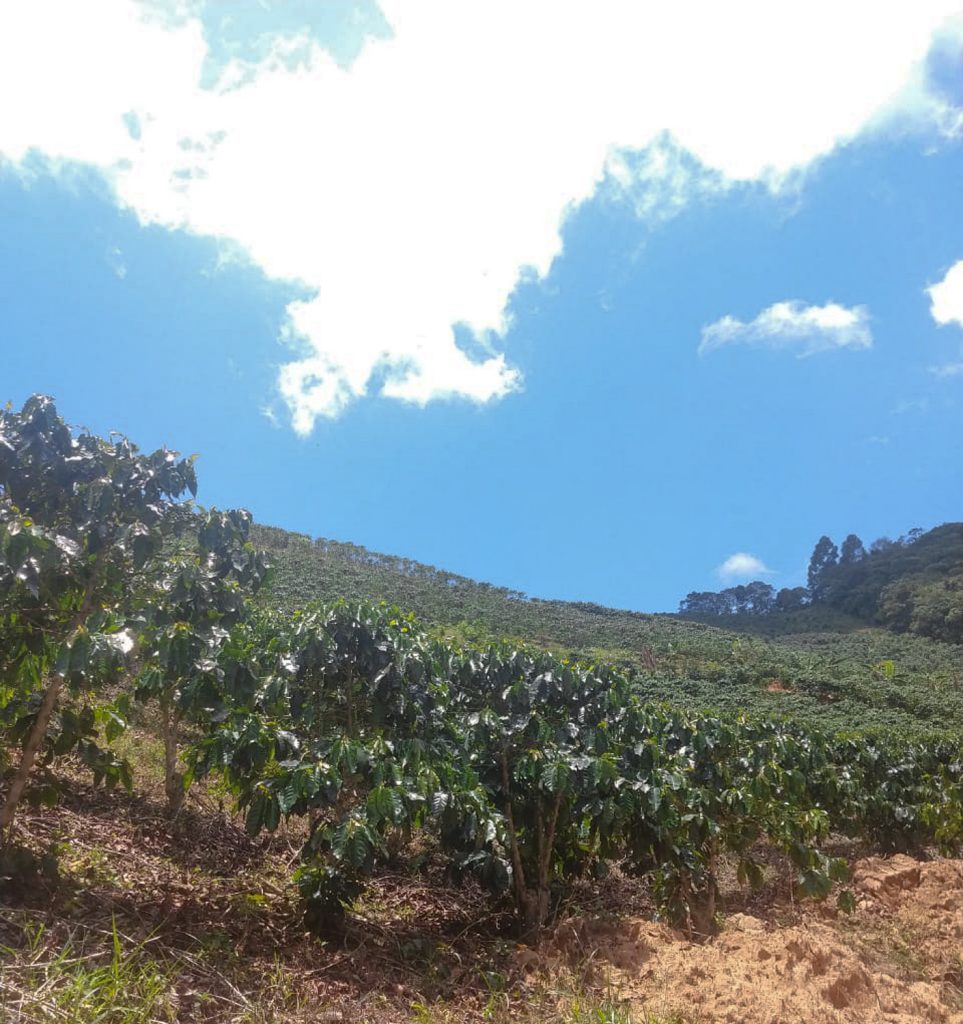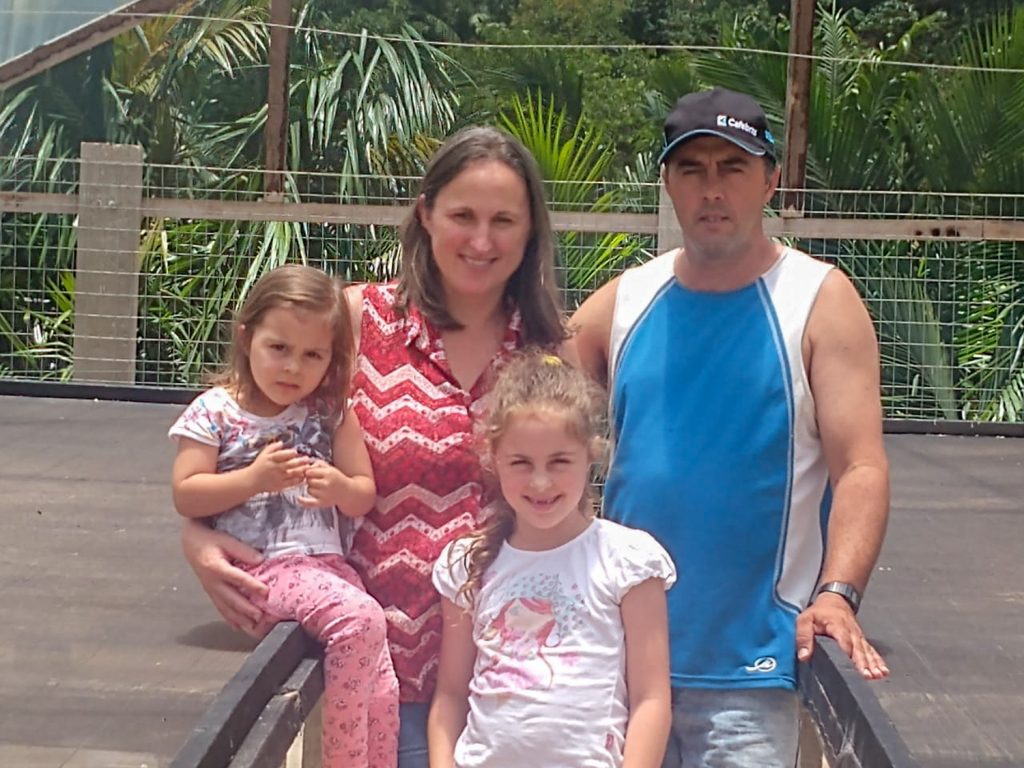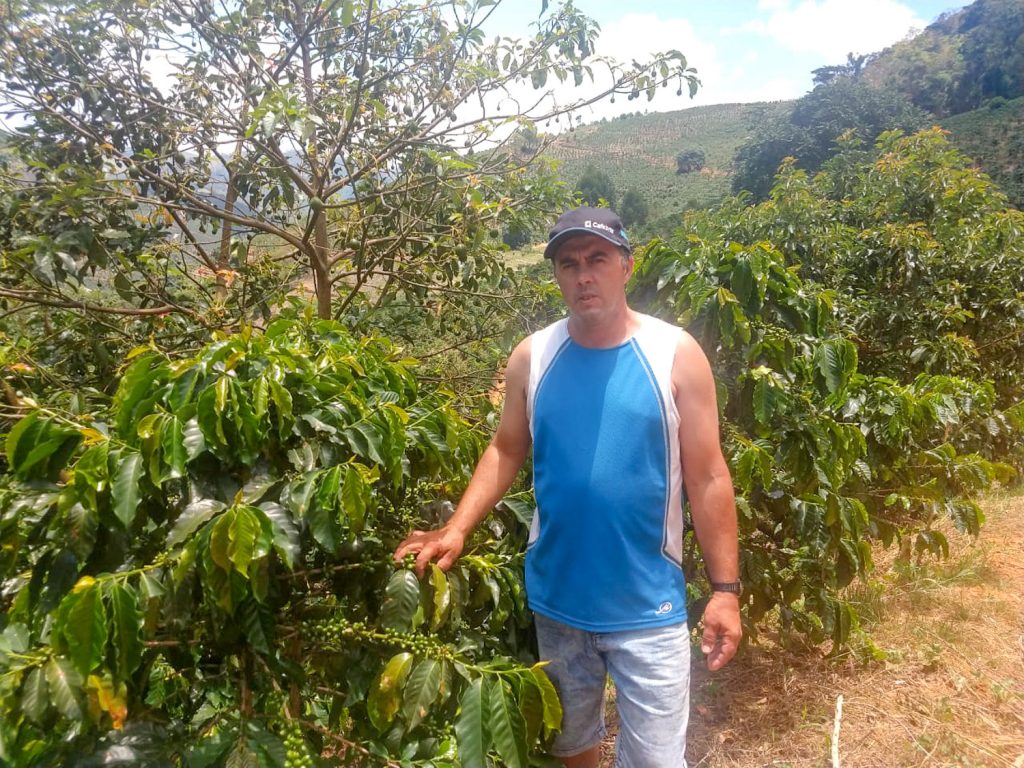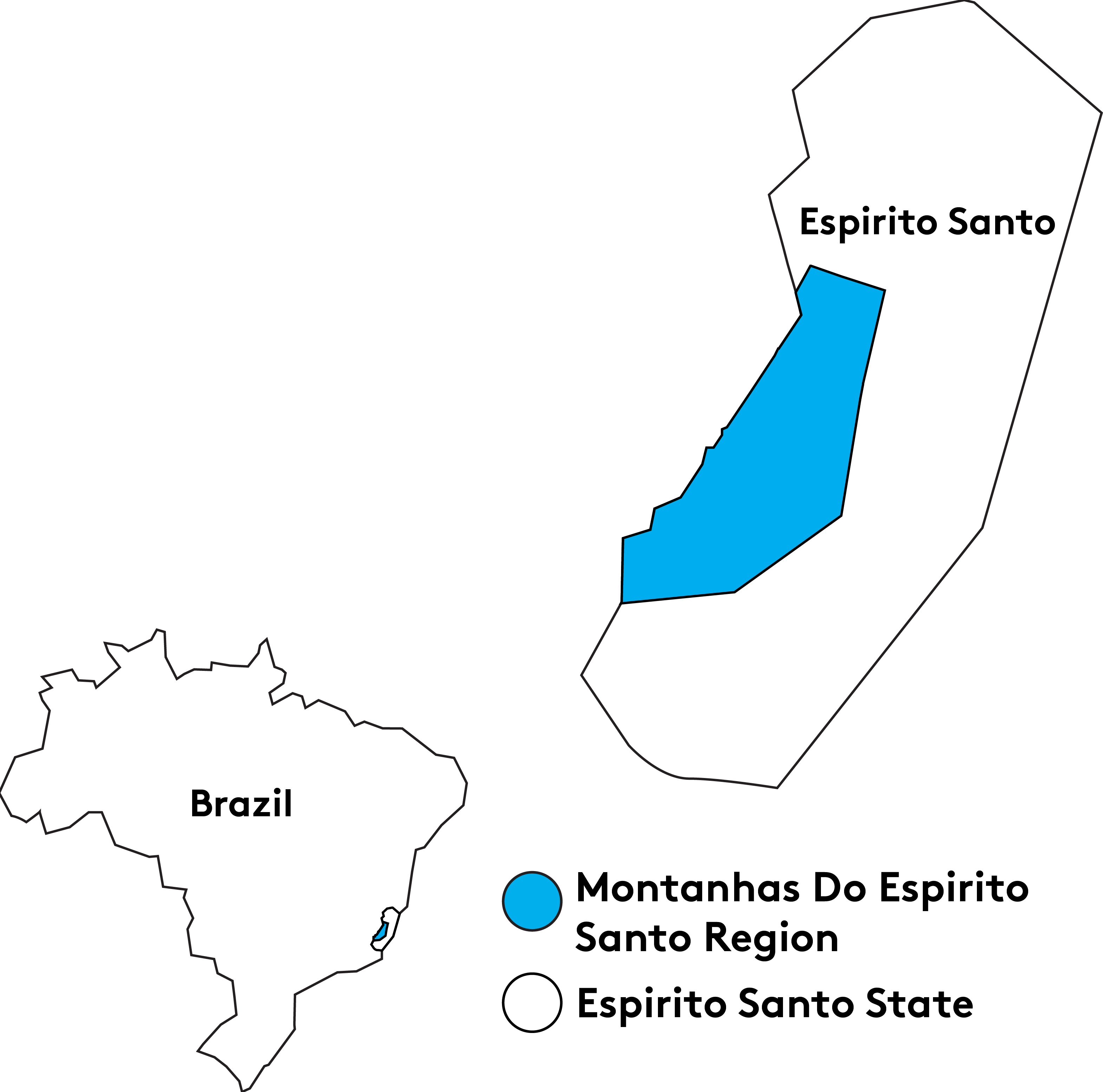Luciano Dazilio Delpupo grew up alongside his father, who worked in coffee farming in the district of Vila Pontões, Afonso Claudio on neighbor’s farms as a partner in production. As an adult, Luciano married Josaine Lietig Braga and became the administrator of the property she inherited from her family. They kept the farm’s name of Sítio Braga, Josaine’s father’s last name.
The property already had one hectare planted with coffee, but Luciano, motivated and ready to experiment, began to plant new varieties and to try new technologies, always looking for productivity and quality.
Luciano acquired a depulper to begin processing coffee as Pulped Natural and invested in a covered drying patio as well as raised beds. These achievements were difficult, given the high cost and limited availability of manual labor to run the farm. The family’s main income is from coffee, and today their coffee is recognized in local and state level competitions.
Luciano is constantly looking for new markets to be able to continue the work he and his family have begun and to leave his daughters with the tools carry on the farm’s legacy. Currently, 7 of Sítio Braga’s 15 hectares are planted with coffee at elevations ranging from 850 to 1020 meters above sea level in the Córrego Liberdade community.
